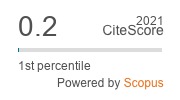An Intelligent Virtual Assistant using Raspberry Pi
DOI:
https://doi.org/10.17762/msea.v71i3.466Abstract
Abstract
Recent breakthroughs in speech recognition have gained attention. It was once science fantasy to conceive talking to a computer. Things change quickly. More people are utilising smart phones to send e-mail, text messages, and seek up information online. Our project involves one such application. This project's purpose is to create an Intelligent Virtual Assistant (IVA) that can do several tasks for a user. All of these functionalities need human input, location awareness, and internet data access (such as weather forecasts and news articles; stock prices and quotes; user schedules; telling the time; travel assistants; calendar events; notifications from social media applications; and so on). This device uses Raspberry Pi and a user's voice as input. Use speech-to-text engines to write spoken words. This procedure's text was used to process queries and obtains data. After obtaining the information, it was converted to voice using text-to-speech and sent to the user. Several modules used keyword matching. It gives visually impaired people speech access to Wikipedia, Calculator, etc. This model may be used as a surveillance system that compares a visitor's speech to a pre-recorded one. Also, blind/visually impaired people may enjoy it. This paradigm provides an automated system that interacts with IOT (Internet of Things). The results of much effort were well-documented.




